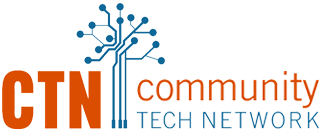In today’s increasingly technological society, many vital tasks have become digital, including accessing healthcare, managing one’s finances, applying for government services, and searching and applying for jobs. Yet, over 21 million Americans still lack access to high-speed internet, or broadband, at home, with underserved communities even more likely to be offline. Lack of access to crucial online resources is a human rights issue, exacerbating already existing social and economic inequalities.
The Importance of Digital Access
In 2016, the United Nations General Assembly declared internet access to be a basic human right, and COVID-19 forced American society to acknowledge that broadband has indeed become “essential infrastructure.” In fact, a recent Consumer Reports study found that 80% of Americans consider internet access to be as important as water and electricity. Overall, the internet is a determining factor for various key outcomes.
Health Outcomes: The Federal Communications Commission considers broadband access to be a “super” determinant of health. Individuals without internet access are unable to access telehealth medicine, which has increased over 38% since the start of the pandemic. They are also unable to quickly find health-related information online, search vaccine availability, or receive notifications through contract tracing if they have been exposed to someone with COVID-19. Additionally, 1 in 3 adults suffer depression, which is only worsened when folks cannot keep in touch virtually with their loved ones. For Elpidia Morales, gaining digital skills with CTN helped her cope with her depression and isolation after being diagnosed with COVID.
Economic Outcomes: The internet facilitates educational and professional growth. It allows individuals to take advantage of online courses, gain new skills, apply for jobs, and learn about other opportunities that can increase one’s earnings potential. It can also help people obtain lower consumer prices, manage their finances through virtual banking, and pay online bills. According to a Deloitte study, a 10% increase in broadband access in 2014 would have resulted in more than 875,000 additional U.S. jobs and $186 billion more in economic output in 2019, since broad access has also been found to increase real per capita GDP. CTN learners like Laurie Rehaney say, “Thank God for this computer; I never would have found my new job without it.”
Educational Outcomes: Students obviously needed fast home internet services when classes became virtual during the pandemic, but even now that they have largely returned to in-person settings, 1 in 5 teens report being unable to do their homework “often” or “sometimes” due to unreliable internet. Many students have been known to use fast food restaurants’ Wi-Fi to complete assignments or to try to finish work on their cellphones before running out of data. Additionally, CTN learners like Damaris say that they can better support their children’s education now that they know how to communicate with their teachers via email.
Civic Engagement: Studies have also found that, with the internet, individuals are more likely to be politically active, as they can more easily contact public officials or sign petitions.
Going Forward
Tackling the Digital Divide is a critical social and economic rights issue. It is a human rights issue. Broadband must be affordable and accessible to all. Digital literacy programs are crucial for all individuals to effectively use the internet even after they can access the resources. Stand up for digital equity today.
Map: Federal Communications Commission, FCC


Comments are closed.